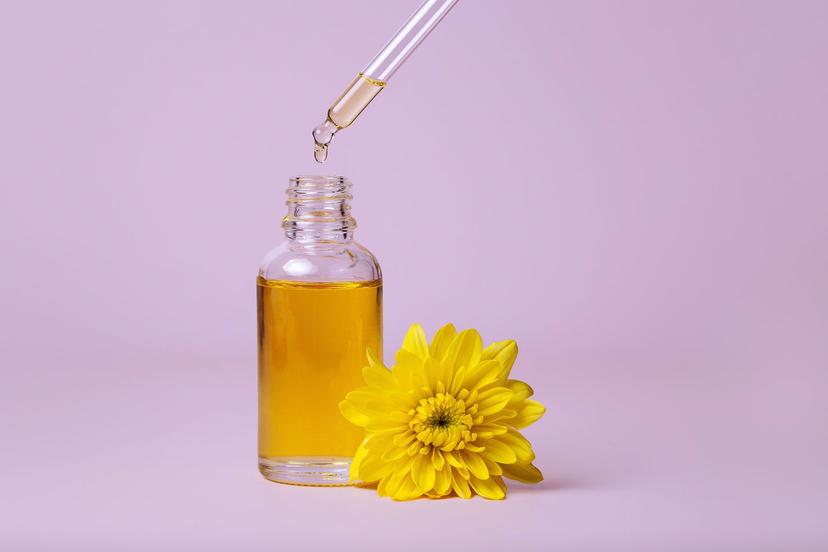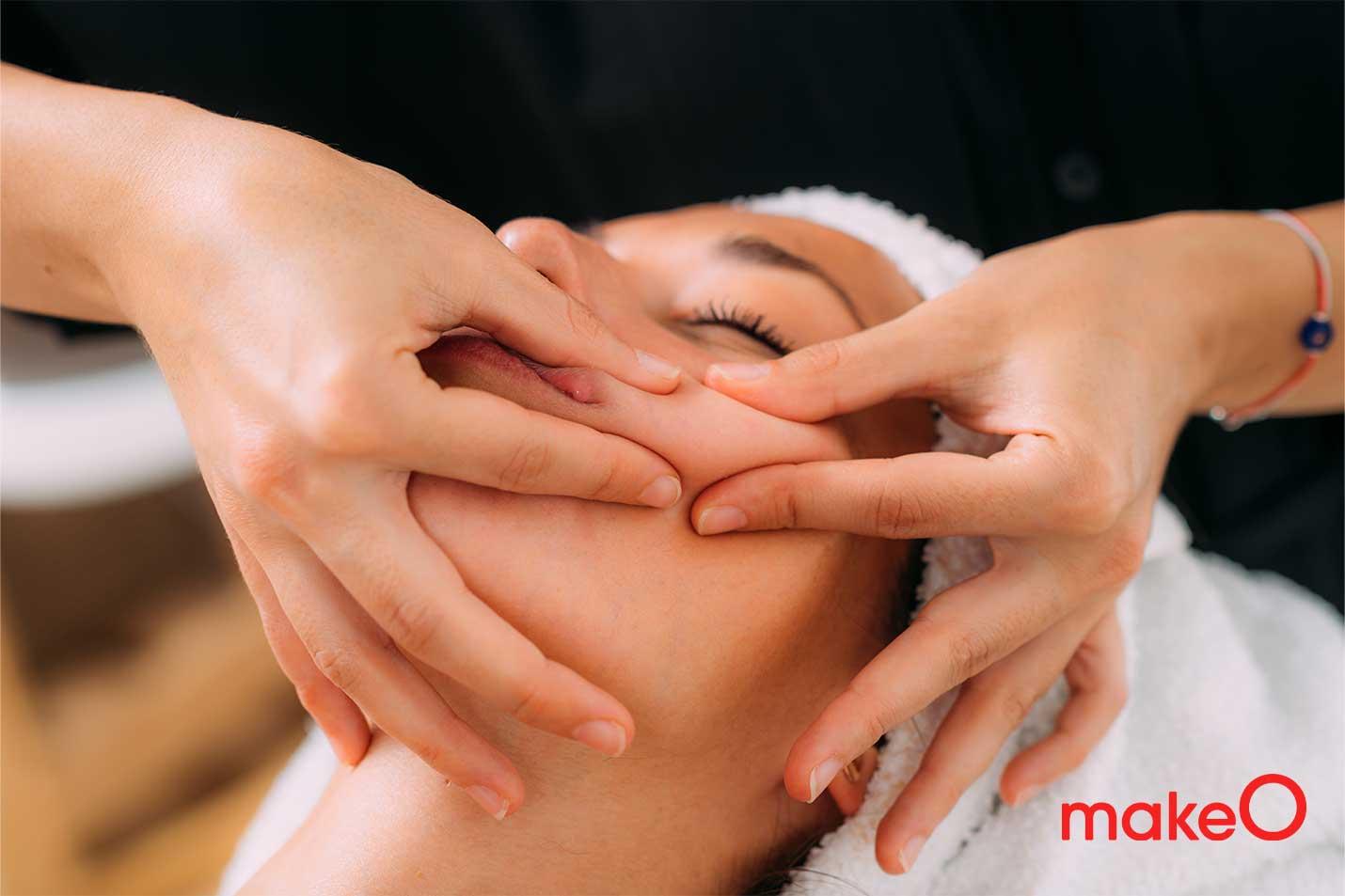MakeO blog
India has a rich history of Ayurveda, where oils have played a significant role in enhancing beauty and well-being for aeons. Facial oils, in particular, have made a grand re-entry into modern skincare and we are obsessed with them!
Facial oils can be used standalone or you can combine them with other skincare ingredients like retinol to address various skincare woes. Stepping into the world of facial oils can be intimidating. Hence, we have decided to make your job easy by coming up with the ultimate guide to facial oils which will benefit skincare beginners who want to explore what wonders facial oils can do for the skin.
What Are Face Oils?
Face oils are concentrated plant-based extracts brimming with essential nutrients that deeply nourish, moisturise, and protect your skin. They are Mother Nature's gift which if used wisely can transform your skin and give you radiant and flawless skin.
Benefits of Using Face Oils
Deep Nourishment
Facial oils penetrate deeper layers of the skin and ensure that your skin stays hydrated for a long period.
Natural Radiance
Facial oils give you a healthy glow. They make your skin appear dewy and radiant.
Protection
They protect the skin from environmental factors like pollution, dirt and debris.
Anti-Ageing
Facial oils are often rich in antioxidants. Hence, they are able to combat the signs of premature ageing like fine lines and wrinkles.
Skin Repair
Did you know that facial oils can speed up your skin's natural healing process? This helps to repair skin damage and reduce acne scars and acne marks.
Types of Facial Oils
The world of facial oils is vast and versatile. Here, we delve deeper into some of the most useful facial oils, uncovering their distinct benefits and applications.
Jojoba Oil
Originating from the seeds of the jojoba plant, this oil mimics human sebum, making it an excellent regulator of oil production. It’s non-comedogenic, ensuring it won’t clog pores. Rich in antioxidants and anti-inflammatory properties, it’s a go-to choice for oily to combination skin, but it's gentle enough for sensitive skin as well.
Almond Oil
Derived from the kernels of sweet almonds, almond oil for the face is a powerhouse of vitamins E and K. It hydrates deeply, evens out the complexion, and can diminish dark circles with regular use. Almond oil is particularly beneficial for those with dry to normal skin, and it's gentle enough to suit sensitive skin.
Rosehip Oil
This gem is extracted from the seeds of wild rose bushes. This oil contains essential fatty acids, vitamins A and C. It also actively boosts collagen production, making your skin look firmer and youthful. It’s also known for reducing scars and hyperpigmentation.
Coconut Oil
Extracted from mature coconut kernels, this tropical treasure is deeply moisturising. Lauric acid, its primary fatty acid, has antimicrobial properties which can help combat acne. However, it’s comedogenic, meaning it can clog pores, so those with acne-prone skin should be cautious. It is best suited for individuals with dry skin.
Argan Oil
Harvested from the kernels of the argan tree, this ‘liquid gold’ from Morocco is brimming with vitamin E and essential fatty acids. It combats dryness, reduces inflammation, and guards against oxidative stress. Argan oil’s deep hydration and antioxidant properties make it a favourite for dry to normal skin.
Neem Oil
Extracted from the fruits and seeds of the neem tree, this oil has potent antibacterial and anti-inflammatory properties. It’s a saviour for acne-prone skin, helping combat breakouts, reduce scars, and tackle pigmentation. Its strong scent may deter some people, but its benefits are undeniable.
Sesame Oil
This ancient oil, derived from sesame seeds, offers detoxifying properties. It’s a natural sun protector and fights signs of ageing. Rich in linoleic acid, it helps maintain the skin’s barrier and keeps it hydrated. Best for combination to dry skin, but its heavier texture may not be suitable for those prone to breakouts.
How to Choose the Right Face Oil?
This depends primarily on your skin type, skin concern and what you want your facial oil to achieve. Here is a list of the best facial oils based on different skin types that you must know while shopping for facial oils:
Oily Skin: Jojoba or neem oil can help balance sebum production.
Dry Skin: Almond or coconut oil will deeply moisturise and nourish.
Combination Skin: Jojoba or sesame oil can offer balanced care.
Mature Skin: Rosehip oil is your best bet for anti-ageing properties.
Acne-Prone: Neem oil will help combat those pesky breakouts.
Who Should and Should Not Use Face Oils?
While most individuals can benefit from the magic of facial oils, those with severe acne or specific skin conditions should consult a dermatologist. Always do a patch test before diving in headfirst.
How to Add Facial Oils to Your Routine?
Including facial oils in your daily skincare regime can seem taxing, but when done right, the results are truly rewarding. Here’s a step-by-step guide to ensure you make the most of these natural wonders:
1. Cleanse Properly
Always start with a clean canvas. Use a gentle cleanser suitable for your skin type to remove dirt, excess oils, and impurities.
2. Tone
Apply a toner to maintain your skin’s pH levels. This step ensures your skin is receptive to the upcoming products.
3. Apply Water-Based Serums
If you use serums targeting specific skin issues like pigmentation or fine lines, apply them now. Water-based formulas are lighter and should precede oil-based ones.
4. Apply Your Facial Oil
Now, take a few drops of your chosen facial oil onto your fingertips. Rub your fingers together to warm the oil slightly, which makes it more penetrable. Gently press and massage the oil into your face and neck in upward circular motions. Ensure you don’t tug or pull on your skin.
5. Seal with Moisturiser
To lock in the benefits of the oil and provide additional hydration, apply your regular moisturiser or cream over the facial oil. This creates a protective barrier and maximises the oil’s efficacy.
6. Sunscreen (AM Routine)
If you're adding facial oils in the morning, always conclude with sunscreen. Even if the facial oil boasts SPF properties, a dedicated sunscreen is vital.
7. Night Cream (PM Routine)
If you’re using the oil at night, you can finish with a night cream or sleeping mask, especially if you desire added hydration.
The Bottom Line
The conclusion is that facial oils have a plethora of skin benefits, ranging from hydration to anti-ageing and skin repair. Remember, everyone's skin is unique, so always listen to your skin and adjust the routine as necessary.
For an elevated skincare experience, consider incorporating facials or treatments by makeO skin(formely skinnsi). We offer all types of advanced skincare treatments ranging from derma-facials, hydrafacials to acne treatments and anti-ageing treatments.
FAQs:
Is almond oil good for the face?
Absolutely! You must keep in mind that almond oil for the face offers hydration, reduces dark circles, and brightens the complexion.
What are the main uses of almond oil for the face?
The primary uses of almond oil for the face include moisturising, brightening, and reducing early signs of ageing like fine lines, wrinkles and age spots.
Are facial oils comedogenic?
It depends from one facial oil to another. Some facial oils can be, so always do your research and pick according to your skin type.
Can I use coconut oil for my face every day?
Yes, you can use coconut oil for your face every day. However, those with acne-prone skin should use coconut oil for the face sparingly.
How do facial oils compare to creams?
While creams hydrate, facial oils provide deeper nourishment and are more concentrated. So, if you want to deeply moisturise your skin then we recommend you choose facial oils over creams.
related categories
Related articles

Anti-Ageing Face Oils: Unveiling the 10 Best Facial Oils for Youthful Skin

5 Common Mistakes to Avoid When Using a Face Roller

Is Aloe vera effective for acne? Find out

5 Side Effects of Hair Removal Creams That You Must Know

